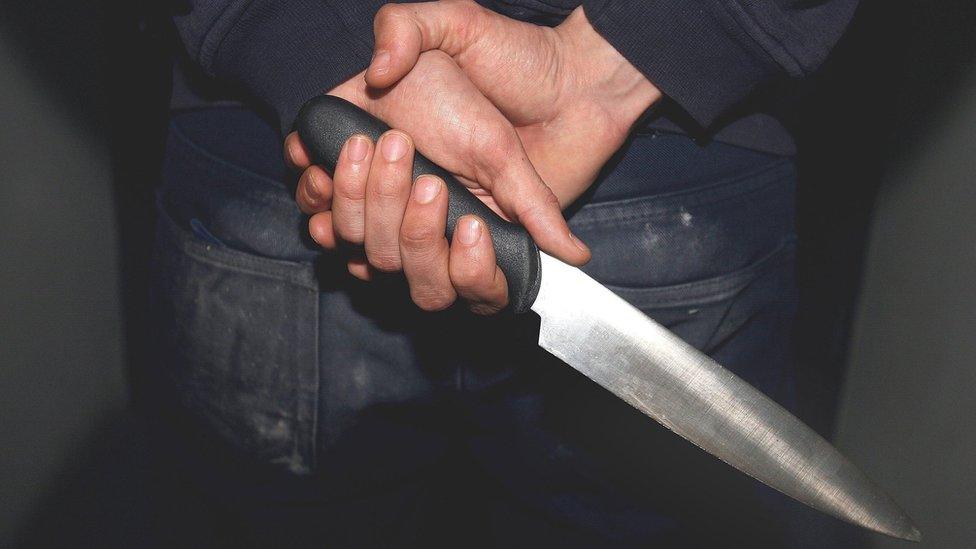London homicides reach 100 for sixth consecutive year
- Published
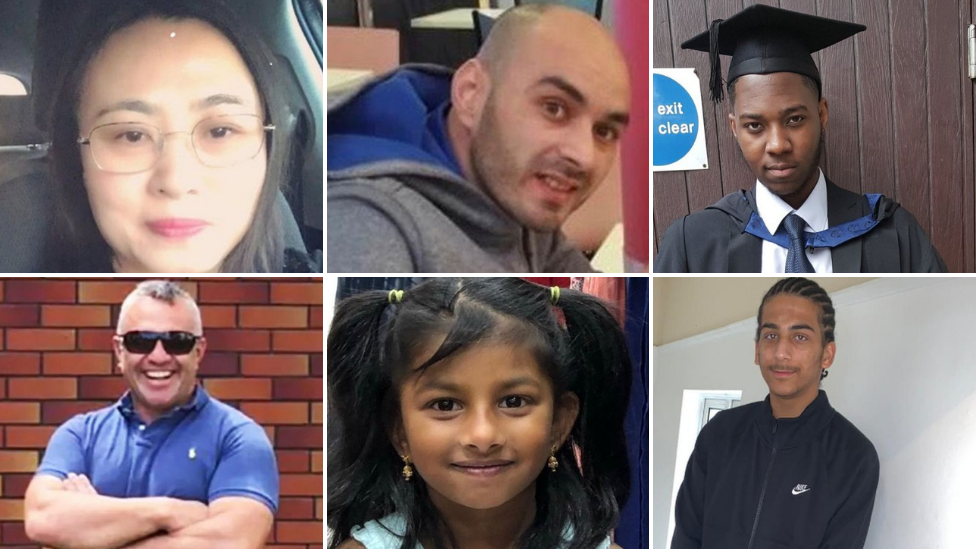
(From left to right) Li Qing Wang, Takieddine Boudhane, David Gomoh, Sgt Matiu Ratana, Sayagi Sivanantham and Louis Johnson have all been killed in London this year
The number of killings in London has exceeded 100 for a sixth consecutive year, BBC research has found.
The deaths of Poorna Kaameshwari Sivaraj and her son in Brentford mean there have been 101 homicides in 2020.
Ninety-nine of those murder and manslaughter investigations have been launched by the Met, while British Transport Police has recorded two.
Data gathered and analysed by the BBC found there had been 55 fatal stabbings so far this year.
Other findings over the last 10 months include that 12 teenagers have been killed - all of them male - while six homicide victims were children aged 10 and under.
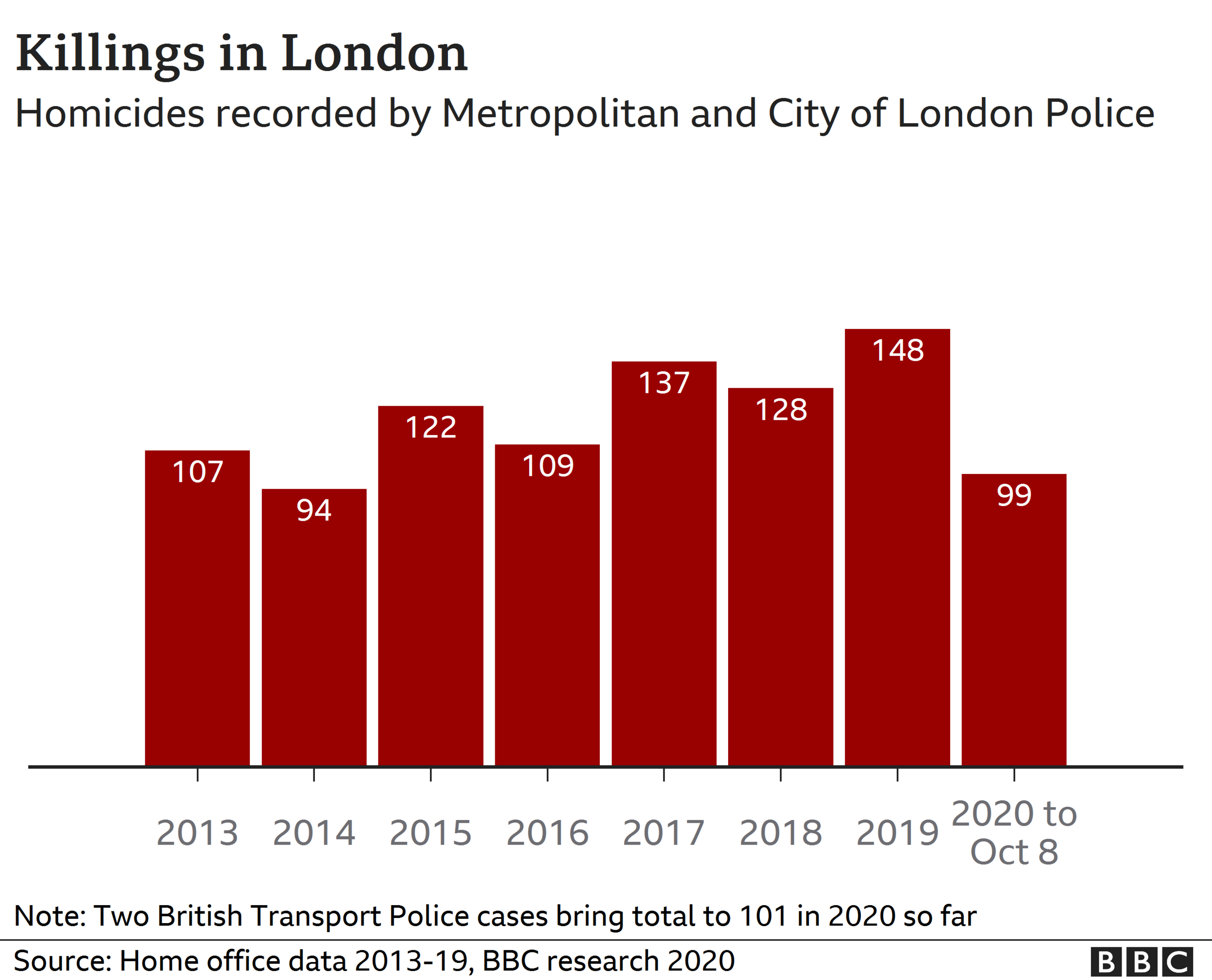
The data also showed 18 people were killed while the capital was put into lockdown as part of drastic measures to stop the spread of coronavirus.
Havering is the only London borough which has not seen a murder investigation launched in 2020, the BBC has also found.
'Deep sadness'
Charges have been brought in more than two-thirds of all investigations and there have been convictions in a number of cases, including the stabbing of teenager Louis Johnson who was killed at East Croydon station in January.
Sophie Linden, London's deputy mayor for policing and crime, said the milestone brought "deep sadness and deep regret".
She said: "It is always sad that we have lost so many people in the last six years, and we have to remember that there are people and families behind these statistics.
"The difference in murders really shows the complexity, and ranges from young children to teenagers to violence on the street and women being killed in their own home."
Last year London saw its deadliest year in a decade with more than 150 people killed in the capital. City Hall data showed that about 10% of those homicides were related to domestic violence.
Additionally during the lockdown period City Hall said there was a 25% increase in calls to the National Domestic Abuse helpline as well as a rise in domestic abuse-related incidents in the capital.
Latest figures show that more than 440 people, mainly women, have been referred to an emergency programme to support individuals fleeing domestic violence and abuse.

Analysis
By BBC London Home Affairs correspondent Katharine Carpenter
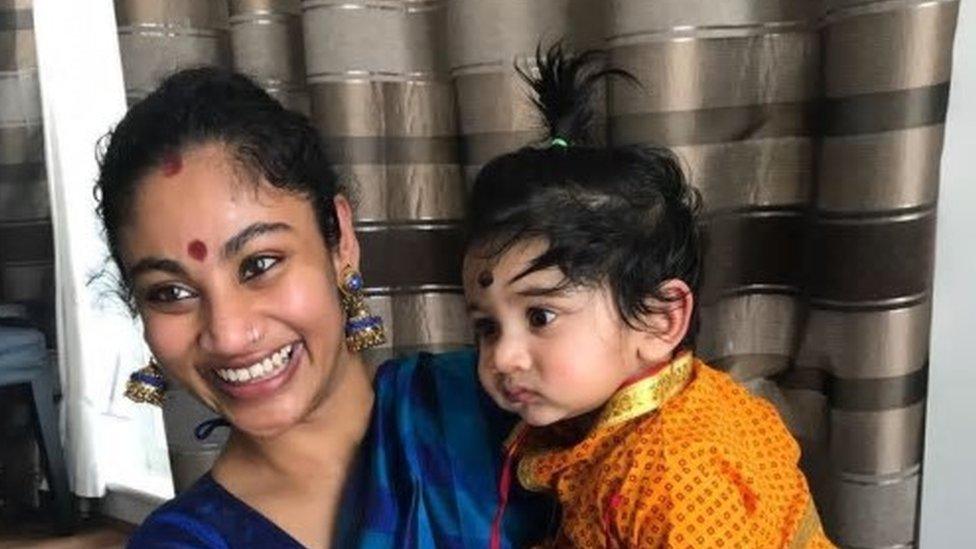
Poorna Kaameshwari Sivaraj, 36, and her son Kailash Kuha Raj were last seen on 21 September
Looking at murders in the capital as statistics is always grim, but the most recent name on the list from 2020 is particularly poignant - Kailash Kuha Raj was just three years old.
He was stabbed to death in Brentford, his body discovered near that of his 36-year-old mother on Tuesday. Their deaths are a reminder that there are many different narratives underlying London's homicide figures, and while stabbings are still responsible for by far the highest number of deaths, the ages of those killed and where they lived in the capital vary greatly. Last year the number of domestic violence-related homicides reached a five-year high in the UK, and London charities have warned that many of the risk factors which can lead to women being abused have increased during the Covid 19 pandemic.There has been an increase in fatal shootings too - 13 so far this year compared with 10 in the whole of 2019.
- Published8 January 2020
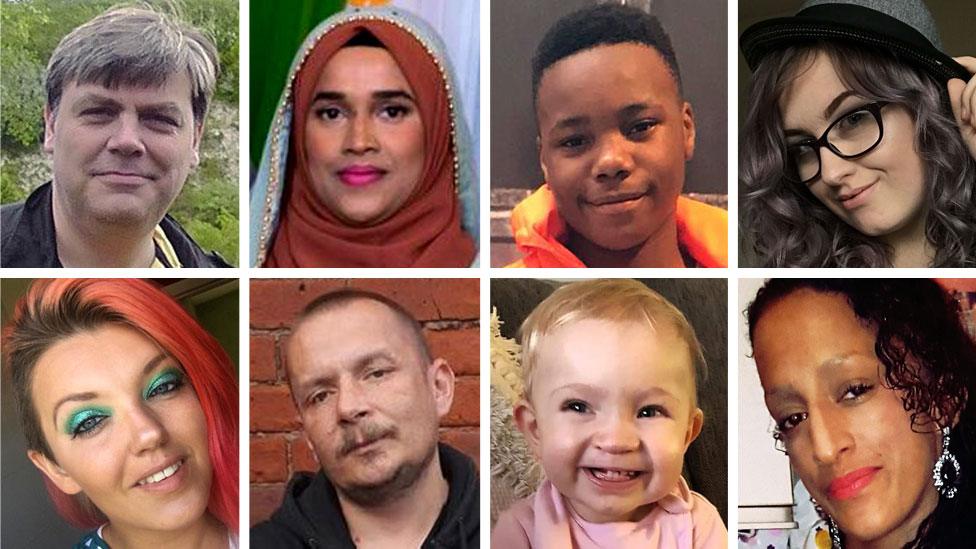
- Published24 January 2018
